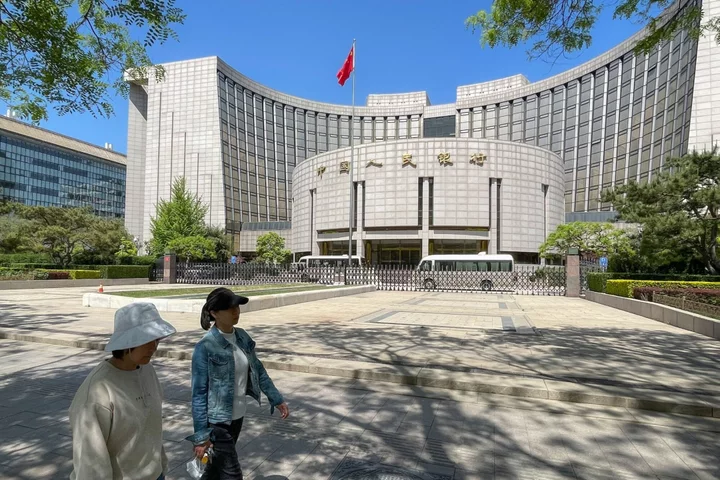China’s economic growth will get a bigger boost if the central bank cuts the reserve requirement ratio for banks rather than interest rates, according to research from Bloomberg Economics.
The growth rate could be lifted by 0.3 percentage point this year if the central bank reduces the reserve ratio — or the amount of cash that lenders must keep in reserve — by 25 basis points in the second quarter, Bloomberg Economics said in a report Thursday. A cut of that magnitude would add 500 billion yuan ($71 billion) worth of liquidity to banks, which they can use to increase loans.
A 10 basis-point reduction in the rate on the People’s Bank of China’s one-year policy loans — known as the medium term lending facility — would raise gross domestic product growth by 0.1 percentage point, the economists estimate. Should the PBOC break away from its usual practice and choose to trim the rate by 20 to 25 basis points, the lift to economic growth could reach 0.3 percentage point, the report shows.
Monetary easing through cuts in the RRR or the policy rate “would send an immediate signal to the broader market that growth is now the focus, helping boost confidence,” economists Chang Shu and David Qu said in the report. “They have powerful signaling effects that argue for their greater role,” they said.
China’s recovery is softening, based on recent economic activity data, prompting analysts to call for more policy action. Goldman Sachs Group Inc. forecasts a 25 basis-point cut in the reserve ratio in June, and Guotai Junan International Holdings expects a potential cut to the MLF rate in the same month.
The central bank has held its policy rates steady since August 2022, and only lowered rates sparingly during the pandemic. It last reduced the RRR by 25 basis points in March.
The government could roll out targeted transfers to vulnerable households and extend exemptions for social security payments for small private firms, which would increase private sector hiring and investment and also improve sentiment, they said.
Government spending on infrastructure, which has been one of the main growth drivers in recent years, may be less effective in boosting the economy now, according to Bloomberg Economics. Overall investment slowed in April, and government bond issuance could drive up funding costs for firms and crowd out private investment, the economists said.

